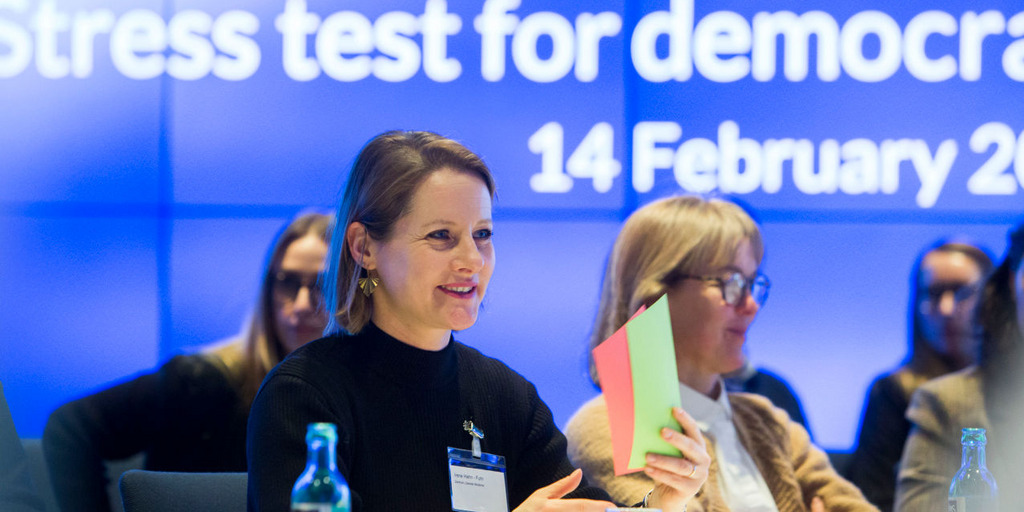The fourth round table of the event series Stress test for democracy moderated by Dominik Hierlemann brought in Karolina Wigura from Kultura Liberalna and Bulcsu Hunyadi from Political Capital to discuss what is going on with democratic commitments in Poland and Hungary, how similar are situations in both countries, what can the EU do to curb the on-going ‘democratic backsliding’ and whether this backsliding can and, importantly, will still be reversed.

© Sebastian Pfütze
Where are Poland and Hungary headed?
Discussions about the state of democracy in Poland and Hungary are rarely optimistic and reassuring. Gradually deteriorating rule of law, shrinking space for civil society, excessive state control over media – all these trends are assessed as extremely alarming. These developments also put the EU under additional pressure: how long can the EU tolerate both countries’ peculiar attitude towards democracy, especially in times of the full-scale war in Europe?
Content
Democracy under stress: differences and similarities
Democracy is challenged to different degrees in Poland and Hungary. In Poland, ideology plays a far greater role, Wigura and Hunyadi noted. The government's influence on the media has become even stronger since the war in Ukraine began. The war itself seems to have strengthened the government's position. The dispute with the EU over the rule of law continues, but the debates are complex-not even the opposition agrees with EU conditionalities on the rule of law. However, democracy in Poland is far from defeated - the outcome of the 2023 elections is very difficult to predict and the ruling party's victory is not guaranteed.
Viktor Orban's grip on power is much stronger, which, as Bulcsu Hunyadi argues, qualifies Hungary as a non-functioning democracy. The ruling party can rewrite any rule. It has full control over the media and other political resources. It effectively discourages the population from participating in politics, thus resembling an "information autocracy." There are no serious internal constraints on the power of Orban, who has even managed to use the shock of war to his political advantage.
Picture gallery
What is at stake for democracy?
However, neither country is an isolated case of democratic malaise. Rather, they reflect larger global trends: disillusionment with traditional forms of democracy, perhaps as a reaction to rapid social change and an attempt to "freeze" it by returning to values such as family, identity, community and security.
Optimistic notes were rare in the discussion, but they did exist: Polish civil society is more vibrant than it is often portrayed in the West. In Hungary, on the other hand, popular protests are on the rise due to increasing economic difficulties.
For the EU, these developments remain a challenge. If the EU does not seriously address the conflict with Hungary and Poland, the European democratic consensus will be seriously undermined - a consensus that is particularly urgently needed right now.

![[Translate to English:] Teilnehmer am Diskusstionstisch](/fileadmin/files/_processed_/1/f/csm_2023_02_14_BSt_Dem_im_Stress_3713_Office_01_5994f64822.jpg)


